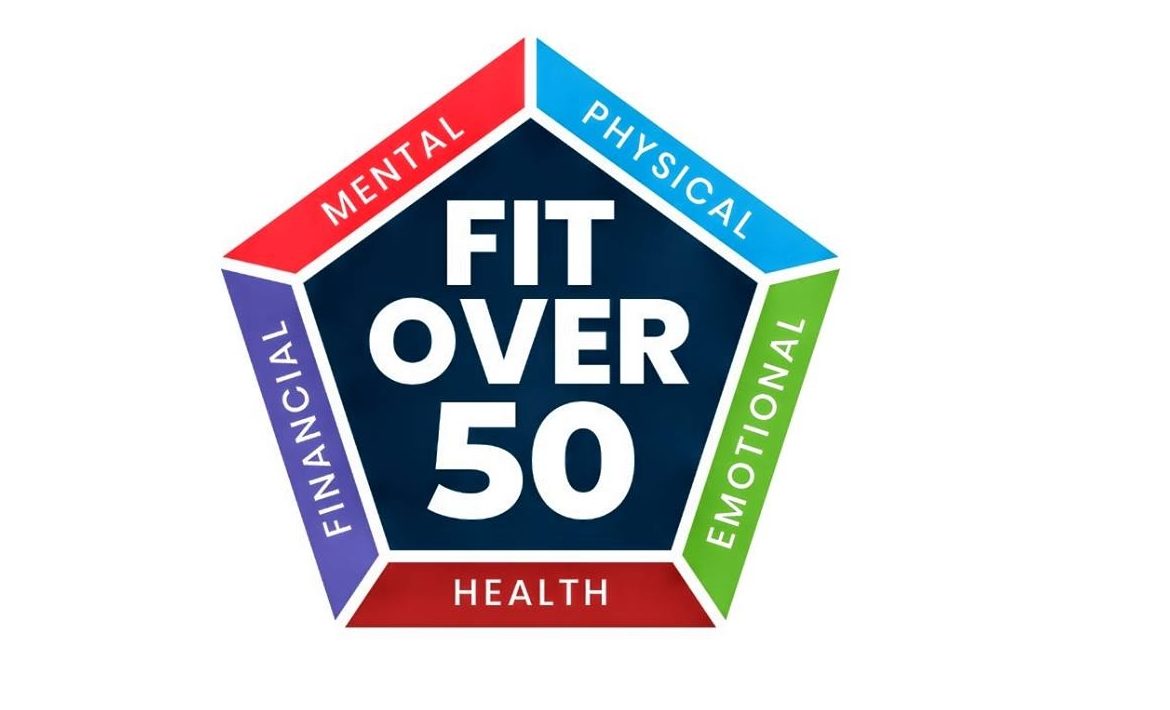
In the coming years, Alzheimer’s disease will become an increasingly significant issue as the population ages. Already, 5.5 billion Americans are living with the disease, and it is predicted that this number will only continue to grow. While the exact cause of Alzheimer’s is still unknown, there are ways to reduce your risk of developing it. So, how can we prevent Alzheimer’s Disease
Some risk factors for Alzheimer’s, such as age and genetics, are unavoidable. However, you can also do many things to lower your risk. Exercising regularly, eating a healthy diet, and staying mentally active can all help keep your brain healthy and reduce your chances of developing Alzheimer’s.
So if you’re concerned about your risk of developing Alzheimer’s, there are many things you can do to protect yourself. Stay active, eat well, and stay mentally stimulated. You’ll be doing everything possible to reduce your chances of becoming a victim of this devastating disease.
Read About The Scourge Of Alzheimer’s
How Can You Prevent Getting Alzheimer’s Disease?
Alzheimer’s disease is a complex condition that still has much to be understood. However, there are some things that people can do to reduce their risk of developing the disease. These tasks include exercising regularly, eating a healthy diet, and staying mentally active.
Additionally, getting regular checkups from a doctor to monitor for any signs of Alzheimer’s or other forms of dementia is crucial.
Some research has suggested that certain lifestyle choices can help to prevent Alzheimer’s disease or delay its onset.
For example, studies have shown that people who exercise regularly have a lower risk of developing Alzheimer’s than those who are inactive.
Additionally, eating a healthy diet and maintaining a healthy weight can reduce the risk of developing cardiovascular disease, which has been linked to an increased risk of Alzheimer’s. Finally, staying mentally active by doing things like reading, playing games, and socializing has been shown to improve brain health. It may help to prevent Alzheimer’s disease.
What Are Three Causes Of Alzheimer’s?
Alzheimer’s is a debilitating disease that affects millions of people around the world. While the exact cause of Alzheimer’s is still unknown, several factors are thought to play a role in its development.
Genetics
A lot of research indicates genetics may be one of the leading causes of Alzheimer’s. If someone has a family history of the disease, they are much more likely to develop it themselves.
However, there are some lifestyle choices that can help to prevent Alzheimer’s or delay its onset. Some things that may help include staying mentally and socially active, eating a healthy diet, and exercising regularly.
It’s also important to stay hydrated and get enough sleep. Anyone concerned about their risk for Alzheimer’s should talk to their doctor about what they can do to reduce their chances of developing the disease.
Environment
Exposure to toxins or pollutants may increase the risk of developing Alzheimer’s. Studies have shown that there is a correlation between environmental exposure and the development of the disease.
The most common pollutants linked to Alzheimer’s are lead and mercury. These toxins can damage the brain, leading to cognitive decline and memory loss. It is essential to be aware of these risks and take steps to protect yourself from harmful exposure.
You can reduce your exposure by avoiding areas where these pollutants are present and using protective gear when necessary. If you are concerned about your exposure, talk to your doctor about ways to reduce your risk.
Lifestyle Choices Can Contribute To Alzheimer’s
Things like diet, exercise, and smoking can all increase the risk.
While there is no sure way to prevent Alzheimer’s, there are some things that you can do to reduce your risk. Keeping your mind active and engaging in social activities has been shown to help protect brain health.
Maintaining a healthy lifestyle by eating a balanced diet and regular exercise can also help reduce your risk. Finally, preventing cardiovascular disease by managing cholesterol levels and blood pressure can help lower your risk of Alzheimer’s.
What are the five foods that Are Risk Factors For Alzheimer’s?
While there is no definitive answer to this question. The link between food and Alzheimer’s disease is still being studied. Some experts believe there may be a link between Alzheimer’s and diets high in saturated fat, sugar, and processed foods.
Some specific foods that have been linked with an increased risk of Alzheimer’s include:
Red Meat

Alzheimer’s disease is a devastating condition that currently has no cure. While the exact cause of Alzheimer’s is still unknown, there is growing evidence that diet plays a role in its development.
In particular, eating red meat has been linked to an increased risk of developing Alzheimer’s. One theory is that high preservatives and chemicals used in processed meats can damage nerve cells and lead to Alzheimer’s.
Another possibility is that eating red meat increases the risk of plaque buildup in the brain, a hallmark of Alzheimer’s. Whatever the reason, it is clear that eating red meat increases the risk of developing this devastating disease.
Fortunately, some simple lifestyle changes can help to prevent Alzheimer’s. Eating a healthy diet, exercising regularly, and staying mentally active are all essential steps in preventing this disease. By making these changes, you can help keep your brain healthy and reduce your risk of Alzheimer’s.
Butter

There is no definitive answer to why the use of butter is associated with Alzheimer’s, but there are a few potential explanations.
One theory is that the saturated fats in butter can damage cells in the brain, leading to inflammation and the development of Alzheimer’s. Another possibility is that the cholesterol in butter can reduce blood flow to the brain, which could also contribute to the onset of Alzheimer’s.
Additionally, butter is high in calories and unhealthy saturated fats, which could increase your risk of developing Alzheimer’s. Overall, there is limited evidence connecting butter to Alzheimer’s. Still, avoiding eating unhealthy foods like butter is generally advisable if you want to lower your risk of developing this condition.
Cheese

There is no definitive answer to why the use of cheese is associated with Alzheimer’s, but there are a few possible explanations.
One theory is that the high levels of sodium in cheese can damage blood vessels and lead to a decreased flow of oxygen and nutrients to the brain. This decrease in oxygen and nutrients could contribute to the development of Alzheimer’s.
Another possibility is that the dairy products in cheese contain compounds called beta-amyloids, which have been linked with the development of Alzheimer’s. These compounds can form plaques in the brain that may interfere with normal function and contribute to the progression of the disease.
More research is needed to determine precisely why cheese is linked with Alzheimer’s. It is crucial to be aware of this potential risk factor and limit your intake if you are at risk for developing the disease.
Fast Food

Some evidence suggests that the use of fast food may be associated with an increased risk of developing Alzheimer’s disease. One potential reason for this link is that fast food is high in unhealthy fats and processed ingredients, which have been linked to inflammation and other health problems. Additionally, eating large quantities of fast food may contribute to weight gain and obesity, known risk factors for Alzheimer’s.
Processed Snacks

Processed snacks, like potato chips and other fried foods, have been linked to an increased risk of Alzheimer’s disease. One possible explanation is that the fats in these snacks contribute to the development of plaque and tangles in the brain, which are both associated with Alzheimer’s.
Another possibility is that the processed nature of these snacks leads to inflammation in the brain, which has also been linked with Alzheimer’s. Whatever the reason, it is clear that consuming processed snacks increases your risk of developing this devastating disease.
Make Healthy Dietary Choices For Brain Health
Making healthy dietary choices is vital for overall health and may help reduce your risk of Alzheimer’s. Some foods that are good for your brain include leafy green vegetables, berries, and fish. It is important to eat a variety of colors to get the most benefit from your food. Try to avoid processed foods, sugar, and saturated fats. Exercising regularly and staying mentally active are also important for keeping your brain healthy.
Prevent Cardiovascular Disease
Diets high in saturated fat have been linked to an increased risk of cardiovascular disease, leading to brain damage and memory loss. Furthermore, sugar has been shown to contribute to inflammation in the brain, which has been linked with a reduction in cognitive health.
Finally, processed foods are often high in additives and preservatives, harming brain health. At the same time, more research is needed to confirm the role of diet in preventing Alzheimer’s. Making healthy dietary choices is an excellent way to promote overall health and reduce your risk of developing this debilitating disease.
What are aome ways to prevent Alzheimers’
There are many ways to help prevent dementia risk. Some of the most important include staying mentally and socially active, eating a healthy diet, maintaining a healthy weight, exercising regularly, and not smoking.
Staying mentally and socially active is critical. Engaging in activities stimulating the mind, like puzzles, reading, or learning new things, can help keep the brain functioning optimally. Socializing with friends and family can also help keep the mind active and engaged.
Eating a healthy diet is also essential. Eating plenty of fruits and vegetables and foods high in omega-3 fatty acids can help protect the brain from age-related damage. It’s also necessary to avoid processed foods and sugary drinks.
Maintaining a healthy weight is another important way to reduce your risk of dementia. Being overweight or obese increases your chances of developing type 2 diabetes, heart disease, and other health problems that can lead to dementia. Exercise is another critical factor in maintaining a healthy weight. It helps you stay healthy overall but also helps keep your brain functioning well.
Finally, avoiding smoking is critical in preventing dementia. Smoking damages blood vessels and increases your risk of stroke, which can lead to dementia.
Can Beta-amyloid Accumulation Be Prevented?
While the role of beta-amyloid in the development of Alzheimer’s is still under investigation. It is possible that preventing or reducing beta-amyloid accumulation could delay or prevent the onset of the disease.
There are several potential ways to achieve this, including increasing the production of enzymes that break down beta-amyloid, increasing the removal of beta-amyloid from the brain, or using drugs to inhibit the production of beta-amyloid.
Some studies have suggested that combining these methods may be the most effective. For example, one study found that a combination of drugs that increased beta-amyloid removal and inhibited its production was more effective at preventing beta-amyloid accumulation than either approach alone.
While more research is needed to determine the most effective way to prevent beta-amyloid accumulation, these findings suggest that it may be possible to delay or prevent Alzheimer’s disease by targeting beta-amyloid.
In addition to these potential treatments, maintaining a healthy lifestyle is vital for preventing Alzheimer’s disease. Studies have shown that cardiovascular disease and poor brain health are risk factors for Alzheimer’s disease. Eating a healthy diet, exercising regularly, and keeping your mind active could help to reduce your risk of developing the disease.
How Do You Get Rid Of Amyloid Plaque Naturally?
There is no definitive answer to how to get rid of amyloid plaque naturally. Some people advocate for a healthy diet and lifestyle, while others suggest supplements or other natural remedies. However, it is essential to consult with a healthcare professional before making any changes to your routine, as some treatments may not be safe or effective for everyone.
Some suggested methods for getting rid of amyloid plaque naturally include:
-Eating a healthy diet full of antioxidant-rich fruits and vegetables
Lowering blood pressure
-Exercising regularly
-Taking supplements such as omega-3 fatty acids, vitamin D, and curcumin
-Practicing stress-relieving activities such as yoga or meditation
Each person’s body will respond differently to various methods, so finding what works best for you is essential. Consult with your doctor or health care professional to discuss the best way to reduce amyloid plaque naturally for you.

can exercise and meaningful activities help dementia
Does Physical Activity Help In Preventing Alzheimer’s?
There is no definitive answer to whether physical exercise improves Alzheimer’s, as the research on this topic is ongoing.
However, there is evidence to suggest that physical activity can play a role in delaying or preventing the onset of Alzheimer’s symptoms. For example, a study published in the journal Neurology found that regular physical activity was associated with a reduced risk of developing Alzheimer’s disease.
Another study published in the journal JAMA Internal Medicine found that moderate-intensity physical activity was associated with a reduced risk of cognitive decline in older adults.
These findings suggest that physical activity may be beneficial for brain health and may help prevent or delay the onset of Alzheimer’s disease. Additionally, research has shown that cardiovascular exercise can help to improve brain function and protect against cognitive decline.
Therefore, it is possible that physical activity could be beneficial for people at risk of Alzheimer’s disease. However, more research is needed to confirm these findings.
So far, the research on physical activity and Alzheimer’s has been inconclusive. However, enough evidence suggests that physical activity may benefit people with Alzheimer’s or those at risk for developing it.
Health Benefits
Physical activity has been shown to improve cognitive function, help maintain independence, and reduce the risk of falls and other injuries. Regular physical activity can also help reduce the risk of cardiovascular disease, which is a leading cause of death in people with Alzheimer’s.
In addition, physical activity is thought to promote brain health by increasing blood flow and preventing the buildup of harmful toxins.
Therefore, even though the research is not yet definitive, there are many good reasons to incorporate physical activity into your daily routine if you live with Alzheimer’s or are at risk for developing it.
What kind of exercise is good for Alzheimer’s?
Exercise has been proven to be an effective way to improve cognitive function in those who have Alzheimer’s disease.
A recent study showed that adults with Alzheimer’s who participated in a six-month exercise program had improved cognitive function compared to those who did not participate in the program.
The exercise program consisted of three weekly sessions, each lasting for one hour. The participants performed various exercises, including aerobic, strength, and balance exercises.
The benefits of exercise for those with Alzheimer’s disease are numerous. Exercise can help improve cognitive function, cardiovascular health, memory, mood, and overall quality of life. It can also help delay the progression of the disease.
Exercise is a safe and effective way to improve mental health and the quality of life for those with Alzheimer’s disease. It is an excellent way to promote healthy brain aging.
To Sum It Up
Although there is no specific cause of dementia or Alzheimer’s disease, several risk factors have been identified.
One of the most significant risk factors is age. Alzheimer’s disease is most common in people over 65, and the risk increases with age.
Other risk factors include family history, lifestyle choices, and health conditions.
For example, people who are physically inactive or have heart disease are at greater risk of Alzheimer’s.
Similarly, lifestyle factors such as smoking and drinking excessive amounts of alcohol can also increase your risk.
However, by making some critical changes to your lifestyle, you can significantly reduce your risk of developing Alzheimer’s disease.
For example, regular physical activity has been shown to reduce the risk of Alzheimer’s by up to 50%.
Eating a healthy diet is also vital for reducing your risk. Diets high in vegetables, low in sugar, and saturated fat have been linked to a reduced risk of Alzheimer’s.
Finally, making other lifestyle changes such as quitting smoking and managing stress can also help reduce your risk.
Although preventing Alzheimer’s may seem daunting, taking some simple steps can significantly reduce your risk of developing this debilitating disease.


















































